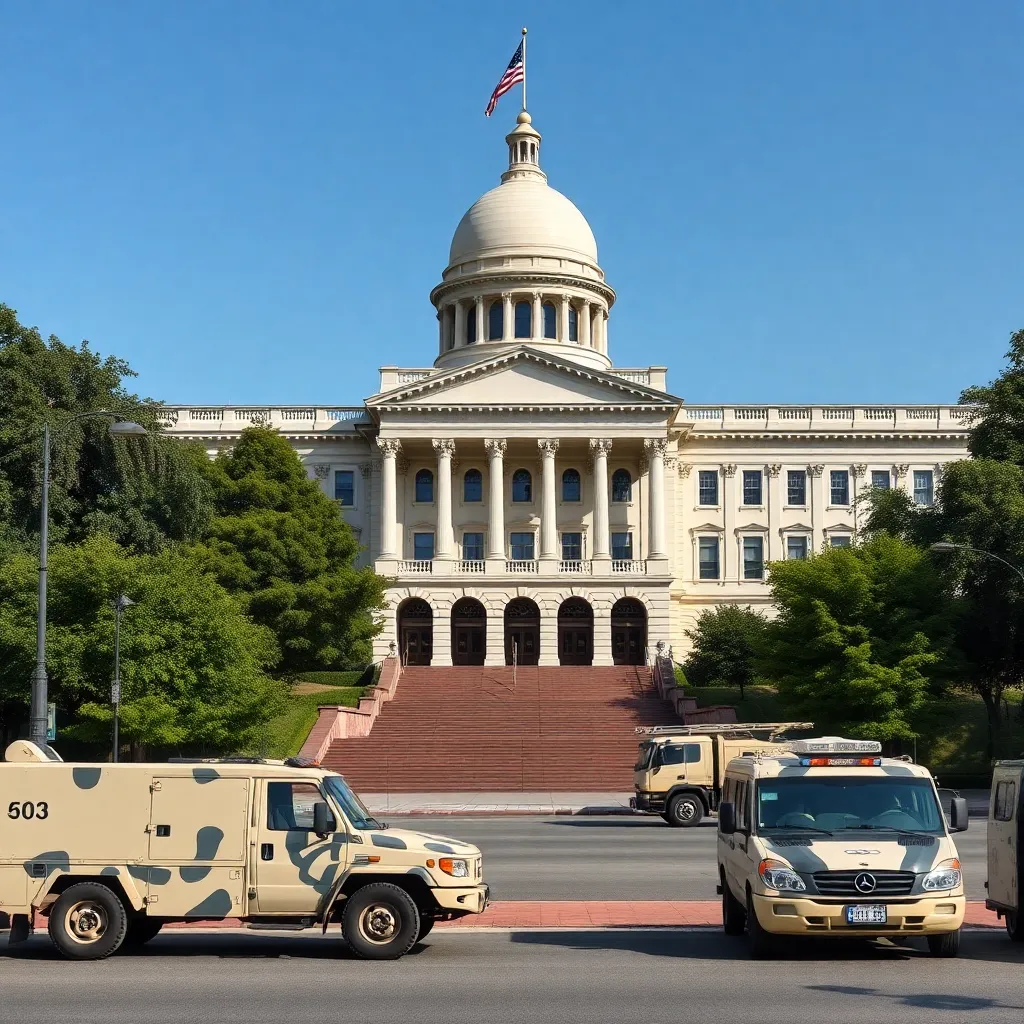

Washington D.C. Finalizes $900 Billion Defense Spending Bill Amid Controversy and Military Priorities
In a significant turn of events in Washington D.C., leaders in Congress have come together to finalize a hefty defense policy bill worth nearly $900 billion. This new legislation, known as the National Defense Authorization Act (NDAA), is packed with details aimed at bolstering U.S. defense capabilities and supporting military families. The bill, which spans roughly 1,800 pages, was unveiled on Saturday evening, setting the stage for various discussions and debates in the coming days.
At the heart of the NDAA is a focus on strengthening America’s military by shifting attention back to its core mission—defending the country and its global interests. Speaker of the House Mike Johnson highlighted that the bill encompasses improving law enforcement efforts and enhancing the National Guard’s role at the southwestern U.S. border. “This bill refocuses our military on its core mission,” said Johnson. It also aims to speed up innovation and reduce the time it takes to acquire new weapons, while strengthening alliances and improving nuclear and missile defense strategies.
One of the standout aspects of the bill is a notable 14.5% pay raise for junior enlisted personnel. This increase is seen as a vital move to support the entry-level service members who play a crucial role in military operations. Chairman of the House Armed Services Committee, Mike Rogers, emphasized the significance of this pay raise, calling it a way to put service members first.
Despite the bill’s many positive aspects, it’s not without its controversies. One provision states that medical interventions for gender dysphoria cannot be provided to children under 18, which has sparked a wave of backlash from various advocacy groups. The Human Rights Council expressed strong discontent, labeling the measure as an “attack” on military families, particularly those with transgender children. Kelley Robinson, president of the HRC, criticized the bill for stripping away essential medical care for families, potentially forcing service members to choose between their military careers and their children’s health care needs.
In addition to the military provisions, the NDAA includes important elements addressing border security. This includes initiatives aimed at creating a Northern Border Mission Center under the Department of Homeland Security (DHS). Johnson’s office assures that the bill will fully support deploying the National Guard to intercept illegal activities at the border, reaffirming the Republican push for a stronger border policy.
The path for the NDAA isn’t guaranteed to be smooth sailing. Although traditionally it garners broad bipartisan support, there are concerns about how many Democrats might be turned off by its controversial provisions concerning diversity training and transgender care. As everyone turns their attention to the House vote expected next week, it remains to be seen how many will back the bill given its divisive elements.
As leaders like Speaker Johnson and Senate Majority Leader Chuck Schumer work to navigate the passage of this substantial legislation, the outcome will be pivotal for U.S. defense policy. The NDAA not only outlines spending but also sets the tone for the country’s military priorities and its commitment to supporting service members and their families.
Stay tuned as we continue to bring you updates on this essential piece of legislation and its impact on national security and military families!
News Summary In a significant move for the Greenville financial landscape, Apollon Financial has acquired…
News Summary In Summerville, SC, Tiffany Johnson-Wilson, CEO of Johnson & Wilson Real Estate Company,…
News Summary York County is set to welcome Komar Industries, based in Ohio, as they…
News Summary South Carolina's tourism industry has experienced a remarkable 65% growth over the past…
News Summary Lexington is abuzz as Michelin proposes a $159 million expansion at its Two…
News Summary The Columbia City Council is exploring significant changes to building height restrictions in…